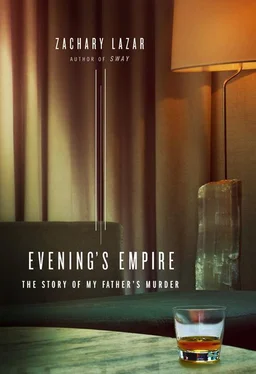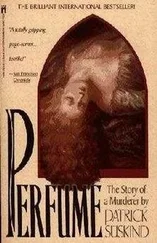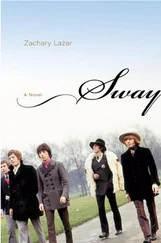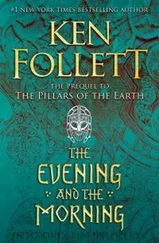He had a criminal record, so he could not get a license to sell real estate in Arizona. When Richard Frost found out he’d been working without a license, he was fired again, but three days later he formed two corporations, Grace and Co. and Diamond Valley, so that he could carry on as a broker for Frost’s ALCO without the name “Ned Warren” appearing on its payroll. Richard Frost kept his ties to Warren because Warren could sell anything, including isolated, quarter-acre parcels of desert scrub. It didn’t matter if the buyers could even afford the payments on their lots. What mattered in the land business, as Warren saw immediately, was not the sale of land but the generation of contracts and mortgages, indebitures that could be sold to a third party — a bank or an investor — or used as collateral for a loan — abstraction upon abstraction, world without end.
The term for the mortgages was paper. A bundle of mortgages was called a package. There was nothing illegal about selling paper to a third party. There was nothing illegal about paying $25 to set up a corporation with your mistress, Donna Stevens, as president, and yourself, the sole stockholder, unlisted as a company officer. It was simply a way to make money, a way a person with $800 and a criminal record could have a chance at becoming a millionaire.
Making no little plans, Phoenix’ movers and shakers count on atomic energy to provide some day the vast power needed to bring salty Pacific seawater fresh into the desert.
— Time,
February 15, 1960
It came out when Warren was still in prison, a four-page story in Time magazine about the economic boom in Phoenix. It described a spendthrift city of Cadillacs and golf courses and fashion boutiques in adjacent Scottsdale. It told of a cocktail party at which, on the spur of the moment, a group of drinkers had put together almost $1 million to create a new building downtown, the Guaranty Bank Building. Drinkers, fantasists — the money in Phoenix looked childlike, something out of a Hollywood farce. But all his life he had banked on the Hollywood farce. Only the naive thought that the Hollywood farce was not an accurate reflection of the way things worked.
In the Time article, there was a profile of a young millionaire named Lee Ackerman, a land developer who was planning a run for governor that year. When Warren first met Ackerman, it was the fall of 1963, almost four years after the article in Time . They were in a room full of businessmen and their wives, gathered there to raise funds for Warren’s acquaintance, Ackerman’s friend, John Roeder, the state senator. Ackerman was a member of the Democratic National Committee. He had been a hero in World War II, a pilot in Africa. People in Phoenix thought of him the way they thought of JFK.
“I see you were talking to my friend Dave Rich over there,” Ackerman said, shaking Warren’s hand.
“Dave Rich from London,” Warren said.
“A character. He couldn’t believe the sun when he first came here. London was still a ruin then — there was still rubble from the war. He came here on vacation and he never went back. He and I went in on some land deals and he made so much money that I sold him my summerhouse in San Diego.”
Warren nodded. He and I— the good grammar struck him. “I’m in the land business also,” he said. “Mostly north of here, in Navajo County. We should get together sometime for a drink.”
The story of David Rich was a token, he realized, a cliché about the American dream that even Ackerman knew was corny, but it was the kind of cliché that everyone agreed with, that opened the door for relationships. He guessed what Ackerman was thinking: that Warren had arrived in Phoenix with a stake raised back East in machinery or electronics. He looked at Ackerman and saw a displaced Harvard graduate — he remembered Harvard from the Time article — still buying clothes from Brooks Brothers, a winning figure made lazy by a lack of competitors. Warren wore a gray suit and a dark tie and a no-nonsense silver wristwatch. He had the trim body of an athlete. He liked Ackerman immediately — they liked each other immediately. They talked about Cambridge and Boston, where Warren happened to have grown up — the Lawrence School, Worcester Academy, not Harvard in Warren’s case, but Penn. When Ackerman mentioned he was from St. Louis, Warren responded genially, not with the Cardinals but with talk about the Italian restaurants on The Hill — not with the obvious but with the specific. He showed Ackerman a picture of a Rolls-Royce he’d looked at on a recent trip to London, speaking of London. “Too expensive, but a beauty,” he said. He confided in Ackerman about the back pain he sometimes got, and Ackerman liked him for the comic way he bent over and rubbed his spine, his drink rattling in the other hand. He didn’t seem to be the kind of person who would ever get back pain.
He saw the openings before other people did. He saw them and exploited them, not for the money — not entirely, or even primarily — but because the game fascinated him, its secrecy and complications. It was not money, it was the feeling of invisibility, of walking into a room and finding the weak points, working your way through the scenarios, thinking three steps ahead, effacing your own cunning so that nobody but you would ever have the chance to admire it.
“I want you and the others to go over to the bars on Van Buren tomorrow night,” he told Tony Serra, a lot salesman at ALCO with skeptical, sleepy eyes. “Not a fancy bar, go to Van Buren, or the Ivanhoe, the dives. Offer everybody a hundred dollars, give them a name, get them to sign the name on a contract. Not ‘John Doe.’ Not ‘Joe Smith.’ Use a good name. Get the phone book and find some real names.”
Serra looked down, drawing some lines on a notepad on his thigh. “A pretty easy sell,” he said. “The Ivanhoe on a Friday night.”
“Make sure the address is a real address, the name is a real name. You’ve filled out enough credit reports by now to know how this is done.”
The contracts he gave Serra were ALCO contracts, but the land was not ALCO’s land. In a way, it was nobody’s land. It was state land, mostly uninhabitable, a few compass points on a surveyor’s map.
“What if someone actually calls the phone numbers on those sales?” Serra said.
“They’re not going to call the phone numbers. They’re going to call the Diamond Valley Corporation if they ever have a problem, but they’re not going to have a problem.”
“They’re not going to get paid.”
“They’re going to get paid. Why wouldn’t they get paid?”
Serra thought about it for a moment. In St. Louis, he had been in the insurance business for a while, another commission-based business, so he knew a little bit about how this was done: sell the policy, split the commission with the buyer, make a few payments to quell suspicion, then let the policy lapse. “You’re going to make the payments yourself,” he said.
“Someone’s going to buy a mortgage from me for thirty-five hundred dollars,” Warren said. “ALCO’s going to pay me a seven-hundred-dollar commission for making this sale. It doesn’t cost me very much to keep up the payments for a few months to make it look right. I’ve already made forty-two hundred dollars.”
Serra nodded. “Poor Dick Frost.”
“You’re not bad. You see where this is going.”
“I guess, what, eventually you assign them one of Dick’s mortgages. Switch it out for a good one. Give Dick the delinquents.”
“Something like that. I may run it through a few corporations first, to make it more complicated. There’s a lot of different ways.”
Читать дальше












